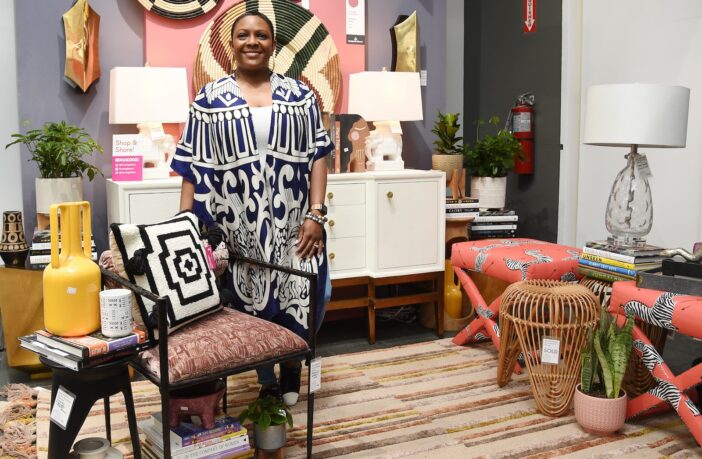Interior design wasn’t on the radar for Beth Diana Smith at the beginning of her career. In fact, she spent almost 15 years immersed in the world of finance and accounting, a field that seemed miles away from the creative chaos of design. But as fate would have it, a simple home renovation project in 2009 ignited a passion that transformed her life.
Smith’s journey into interior design began in the most unexpected way. While redoing her own home, she discovered a love for design that spreadsheets and financial reports could never match. With a meticulous approach honed by years in finance, she dove into blogs and publications, soaking up knowledge and inspiration. This organized, research-driven personality made her initial foray into professional organizing a natural fit. But it was a chance conversation with a friend that truly set the wheels in motion.
One evening, while helping a friend reorganize his bedroom closet, she stumbled upon a massive poster of Halle Berry, awkwardly mounted in the room. The discussion about design aesthetics and personal space that followed was a turning point. The realization that design could profoundly influence how a space felt sparked a deeper interest. This conversation was the catalyst that led Smith to formalize her passion, enrolling in design school while juggling a full-time corporate job.
For four years, she burned the candle at both ends, attending night classes and weekend sessions to build her design credentials. Exhausted but driven, she eventually left the corporate world behind her to pursue interior design full-time. The transition wasn’t just a career change; it was a leap into a field where they could finally express their creativity.
The decision to leave finance wasn’t easy, especially when considering the practical advice from older generations. Millennials, often labeled “vintage millennials” by Smith, grew up with the mantra of securing stable jobs and sticking with them for decades. However, the modern corporate landscape has shifted, making lifelong employment at a single company increasingly rare. Smith’s journey reflects a broader generational shift toward pursuing happiness and fulfillment over mere practicality.
Inspired by trailblazers like Kelly Wearstler and Athena Calderone, Smith’s early design influences were marked by bold, abstract patterns and a sense of artistry. Wearstler’s fearless use of color and pattern resonated deeply, while Athena Calderone’s ability to turn functional pieces into art was captivating. Discovering pioneers like Sheila Bridges further solidified Smith’s design philosophy, emphasizing purposeful layering and the creation of spaces that felt both beautiful and lived-in.
The evolution from finance professional to interior designer wasn’t just about changing careers—it was about finding a community. Networking, especially within the design industry, became a crucial part of her journey. Despite being an introvert, she embraced industry events and networking opportunities, building relationships that would support and inspire her work.
One significant milestone was a project for the One Room Challenge in 2020, where Smith tackled multiple rooms in her own home. The extensive renovation, which included the living room, dining room, kitchen, powder room, stairwell, and hallway, showcased her personal style and attracted new clients, including HomeGoods. This opportunity allowed her to express her creativity without client constraints, demonstrating the power of personal projects in building a designer’s brand.
Navigating the interior design industry as a black woman has its unique challenges. Smith’s experience in corporate environments, often being the only black woman in the room, prepared her for similar dynamics in the design world. The lack of diversity in certain spaces is balanced by the formation of supportive networks among black women designers. These relationships provide crucial support and mentorship, helping to navigate the industry’s complexities.
Dealing with clients and collaborators can be a mixed bag. While some clients fully trust her vision, others struggle with trust, reflecting deeper societal issues. Building trust and managing client relationships requires patience and clear communication, often challenging but essential for successful projects.
For aspiring designers, Smith emphasizes the importance of organic networking. Building relationships based on mutual respect and support rather than immediate gain is crucial. This approach not only fosters a positive industry reputation but also creates a supportive network that can provide valuable advice and opportunities.
Ultimately, Smith’s story is one of transformation and resilience. From the structured world of finance to the creative freedom of interior design, her journey underscores the importance of following one’s passion, even when it means leaving behind the familiar for the unknown. Her path serves as an inspiration to anyone looking to make a significant career change and pursue their true calling.



